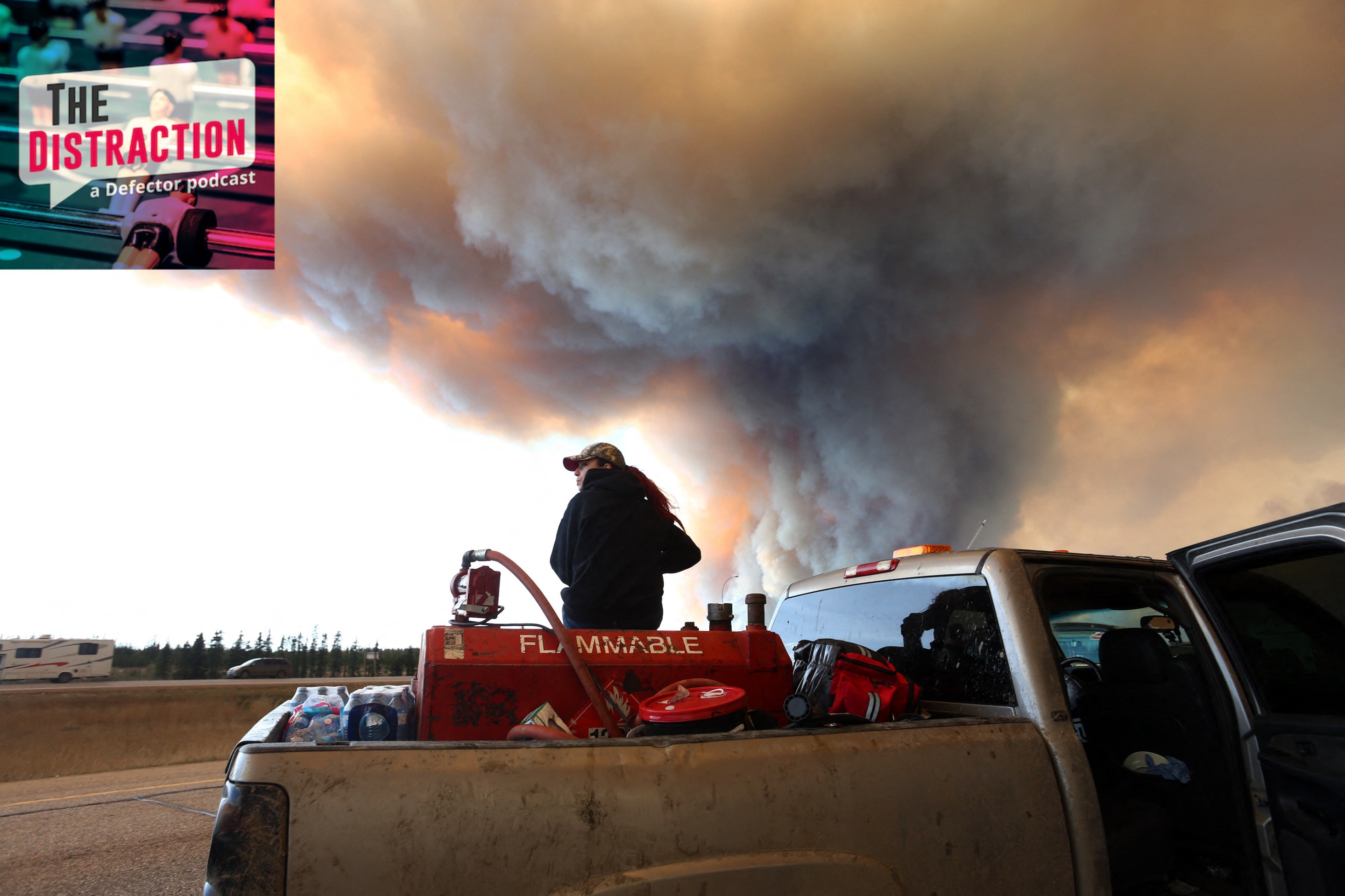Several years ago I wrote about a movie that basically no one saw called The Last Winter. It's a horror movie, I guess, albeit one made by a politically engaged filmmaker whose past horror movies all had some heavily allegorical aspects; the monster that has its way with the cast in this one is, more or less, anthropogenic climate change. I don't imagine I need to tell you who wins.
What made me want to write about The Last Winter, and what has stayed with me about it years later, is the way that it plays along the limits of what kind of horror is actually imaginable, or legible. There's a difference between being skewered by Freddy and trying to get your head around the idea of "wet-bulb temperature" that goes beyond aesthetics, or the core fact that both are going to kill you. Anyway, if I am making this week's episode, in which we are joined by the author John Vaillant to discuss his book Fire Weather, sound like A Serious One, it is because it is honestly a pretty serious one.
Which, to be fair: There are only so many ways to talk about the historic and preposterously terrifying wildfire that surrounded the Canadian city of Fort McMurray in 2016. Vaillant, a Canadian-American nonfiction ace who is one of Drew's favorite writers, wrote about that fire in a way that is both jarringly vivid—torrents of black hail, 45,000-foot pyrocumulonimbus clouds kicked up by the heat, flames so intense that they vaporize the water from firehoses before it even reaches the fire itself, things of that nature—and carefully contextualized. And the context matters a great deal, here, as Fort McMurray is a boomtown surrounded by boreal forest that sits at the center of Alberta's Athabasca tar sands deposit, and where the highly lucrative local business is the extraction of bitumen, a deeply nasty oil sludge that can be turned into usable petroleum. That endeavor is visible from space, even when it is not on fire.
And this, mostly, is what we talked about for an hour—both what happened in and around Fort McMurray and why, both in terms of the specific climatic conditions that made it first possible and then devastating and the broader social and political situation that first put Fort McMurray there in the first place and then saw it grow into a sprawling pop-up city with 90,000 people in it. We talked about how petroleum makes its way into our lives, and makes those lives more parlous and flammable. We talked about the flames, too, and the challenge of trying to fight a forest fire in a damn city. And then, just when things were at their heaviest, Drew hit one of the great segues in the history of our podcast and perhaps any podcast, and we got Vaillant to remember a tennis guy with us, and then field a question from the Funbag about eating canned tuna in public, and I got to tell my story about the worst behavior I have personally encountered as a bus passenger during 23 years of living in New York City.
I'm off next week, although Drew will be hosting another fantastic writer on that episode. I promise to make things extra stupid when I get back, though. We cannot and probably should not maintain this level of moral or intellectual heft every episode, and while it's nice to do it every now and then it's also important to stick to what made us: moderately heated debates about what you'd do if you found a sandwich in an unexpected place.
If you would like to subscribe to The Distraction, you can do that at Apple Podcasts, Spotify, Stitcher, or wherever else you might get your podcasts. Feel free to discuss this week's episode in the comments below. Thank you as always for your support.






